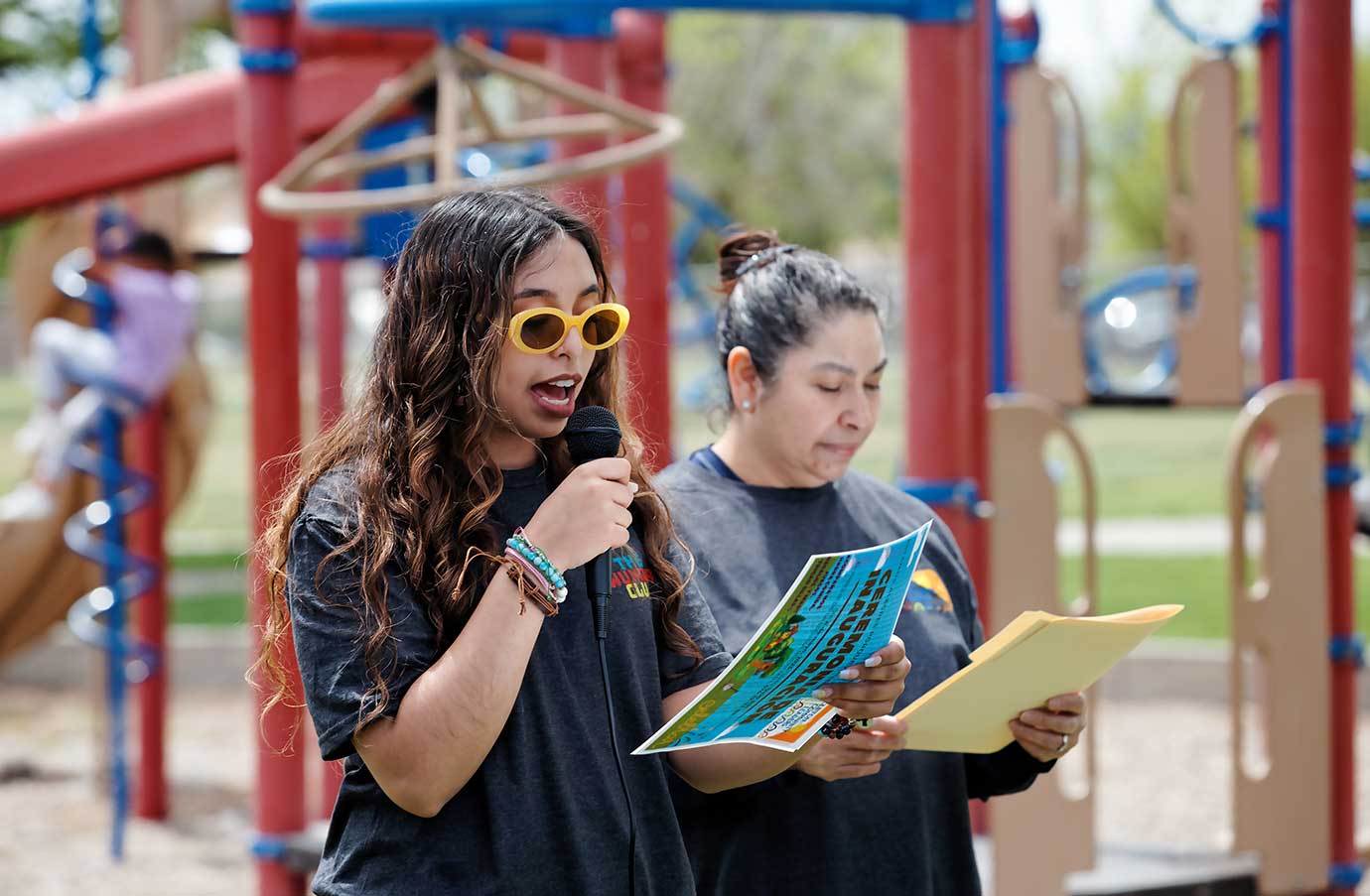Community Partnerships

People building power by coming together to transform unjust conditions in their communities for themselves and their neighbors.
Overview
The Colorado Trust believes that the people most affected by challenges should play a lead role in determining how to address them. To that end, in order to help communities influence the systems that impact their health, The Trust launched the first version of the Community Partnerships strategy in 2014.
Over the years, the strategy iterated in approach, and eventually provided resources and funding for community leaders to advocate for change by first identifying assets and barriers to health equity in their communities, and then proposing and implementing solutions. Organizers engaged with their communities to build awareness of the many issues that can impact health and well-being, including housing stability, food access, educational attainment and systemic racism. They worked with community members to raise awareness of and address urgent community needs.
There were numerous accomplishments over the course of the strategy. For example, in the Hillside neighborhood of Colorado Springs, community members successfully convinced the city to improve the Leon Young Pavilion, an important community park honoring the legacy of the city’s first Black mayor. In Saguache, in the San Luis Valley, resident team members partnered with state and local agencies and others in the community to construct a greenhouse and food pantry to address food insecurity in the area. In Fort Morgan, on the Eastern Plains, resident team members brought live interpretation to city council meetings to allow more diverse and robust civic participation and promote language justice. We are proud of these successes and the many others within the Community Partnerships strategy, and we are grateful for the efforts of the talented community organizers at The Trust who established strong connections and bonds with the communities where they worked.
After deciding to conclude the strategy, to support participating community teams in creating a lasting legacy of service to their neighbors and families, The Trust committed more than $6 million to culminate the Community Partnerships strategy in 2022 and 2023. During the Culmination Phase, Colorado Trust staff worked with community members to provide one-time funding to grantee organizations working to reduce health inequities in their communities. Click here to learn more about these grantees, or watch the Culmination Phase grantee highlight video below.
A Better Future for Colorado's Communities

In Clifton, Years of Advocacy for New Community Gathering Places is Paying Off
With funding from The Colorado Trust and others, one of Mesa County’s most impoverished communities is set for some significant enhancements.
See more storiesCommunities
- Alamosa
- Antonito
- Avondale
- Center
- Clifton
- Dog Patch (Pueblo)
- Dove Creek
- Fort Collins
- Fort Lupton
- Fort Morgan
- Fountain
- Greeley
- Hillside (Colo. Springs)
- Lago Vista Mobile Home Park (Loveland area)
- Montbello (Denver)
- Northwest Aurora
- Olathe (support for language justice work)
- Parachute and Battlement Mesa (Grand Valley)
- Saguache and Lazy KV Estates
- San Luis
- Sheridan
- Southwest Colorado
- Yuma
Staff
Saira Yasmin Hamidi
Mia Ramirez
Angelica Valdez
Francis Cheung
Evaluation Findings
To better understand the impact of the Community Partnerships initiative across Colorado, The Trust worked with several entities to perform a multi-level evaluation:
- Local evaluators partnered with resident teams to assess their work and help them identify changes needed within community-level projects.
- An empowerment evaluation (managed by Change Matrix) was completed with funded communities and the local evaluators, to offer coaching, training and support for resident teams to design and conduct local-level evaluation of their health equity plans, and also to assure alignment with the principle of building and sustaining capacity in the communities. The evaluation measures were directed by the resident teams.
- The Trust worked with an external contractor (Community Science) to complete a macro-evaluation of the strategy; at this level, the evaluation assessed the initiative’s success in building power in communities.
- The Trust conducted a process evaluation among resident teams to better understand successes and challenges of partnering with The Trust on the Community Partnerships work. The goal was to use this feedback to improve the initiative and share back information, stories and learnings among resident teams.

